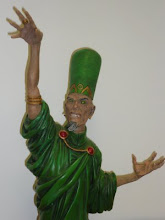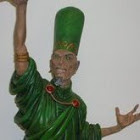
Engrossing and compelling history of the long and slow decline and fall of the Western Roman Empire. In the year 476 AD the final Roman Emperor was deposed and such was his insignificance, allowed to retire off to private life and to die of natural causes. While this was the historical full stop for five centuries of the Roman Empire in the West, it was an essentially soft ending after a very long and frequently, very brutal fall.
The central process that drove the steady decline of the empire was the issue of how power was gained and transferred, steadily the road to running the empire was via civil war. This had a defining impact on the organisation of the empire and the role of the emperor within it. The key actor in deciding who would be Emperor was the army, whoever commanded or bought the loyalty of the biggest army would become emperor. This meant that each new emperor had to be greatly concerned with a usurper arising from the same route they followed, this dove a re-organisation of the empire to reduce the size of the armies to reduce the chance of revolt. This re-organisation also drive the development of an extensive non-military bureau racy and the increasing distance of the emperor for the various armies in the empire, creating room for usurpers.
This steady development lead first to multiple emperors , then the development of a Western and an Eastern Empires and finally the complete separation of the two, with the Eastern Empire going on to last for many hundreds of years after the demise of the Western one.
External forces were very significant in the decline and decay of the Western empire, Adrian Goldsworthy makes the point that there was never any genuine competitor to the Roman Empire. There was no group or kingdom that could remotely match its wealth or reach, its cultural and political dominance was colossal, the internal decay allowed external forces to take advantage of it, they did not bring it to its knees.
Adrian Goldsworthy tells a vivid and exciting story with clarity, flair and a keen sense of the absurd. He follows the evidence and limits the distance he is willing to go beyond it in search of an explanation or conclusion. At the same time he creates a convincing argument that provides a strong context for the events he describes. The enduring legacy of the Roman Empire is astonishing, the wonderfully lucid and thoughtful book is a great testament to its enduring nature.


No comments:
Post a Comment